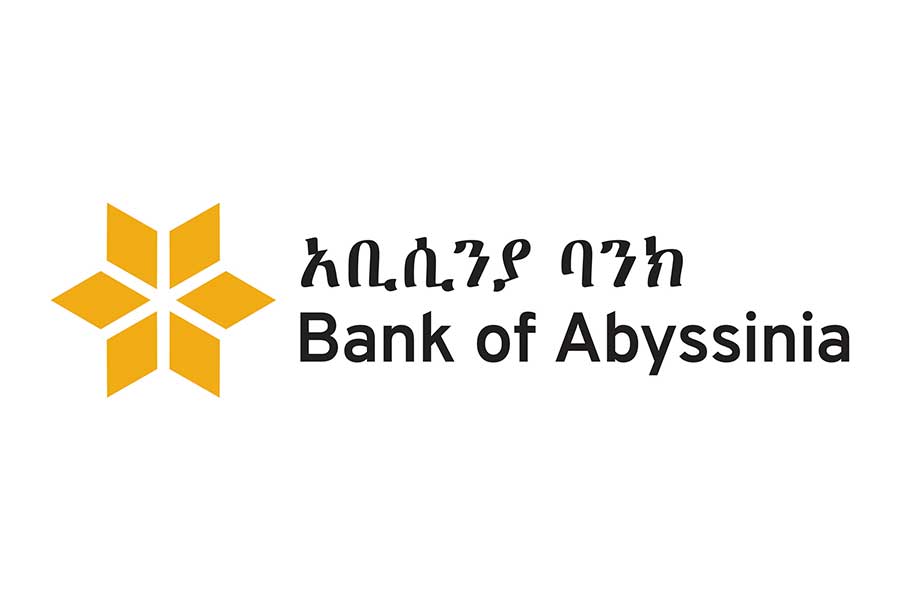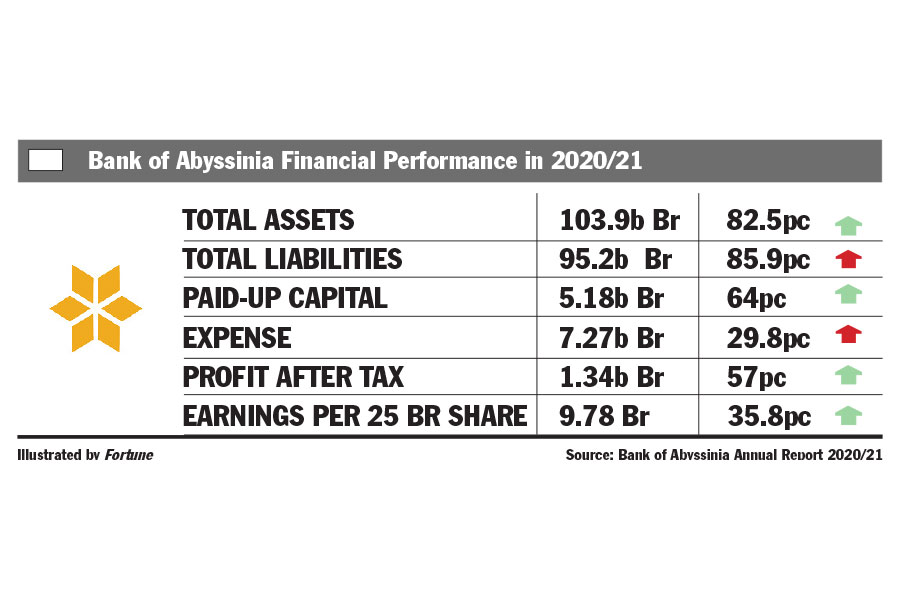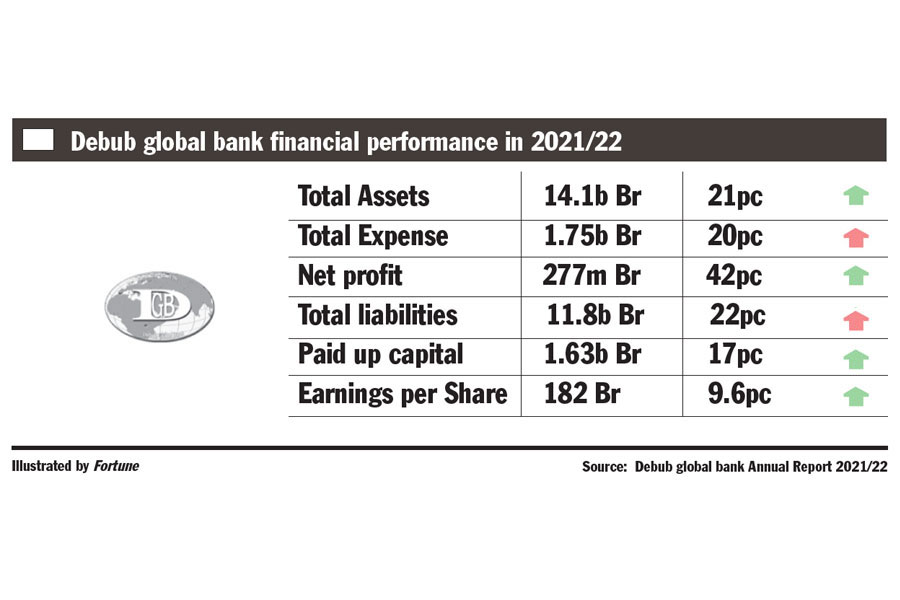
Radar | Aug 13,2022
Oct 4 , 2025.
Eyob Tekalegn (PhD) had been in the Governor’s chair for only weeks when, on September 29, 2025, the Monetary Policy Committee chairs loosened the banking industry's credit-growth ceiling. From the new fiscal year, banks may expand loans by up to 24pc, six percentage points more than before.
The move nudged a wary industry, whose lenders are already juggling thin liquidity and scarce foreign currency, toward a slightly faster gear. It is, though, more a tactical adjustment than a monetary revolution, a gesture that favours stability over stimulus while the economy wrestles with stubborn macro-imbalances. Eyob's decision produced cautious optimism, and a fair bit of scepticism, among bankers who have watched the National Bank of Ethiopia (NBE) tighten and loosen the taps for years without ever daring a wholesale overhaul.
The Governor's latest move, they suspect, is another exercise in fine-tuning rather than a bold leap.
The Central Bank's logic appears to be defensive, given that external reserves remain thin, macroeconomic imbalances abound, and banks already face liquidity strains. Allowing faster loan growth in those conditions amplifies risk. A higher loan-to-deposit ratio (LDR) erodes buffers when confidence is fragile. Plenty of foreign banks with aggressive LDRs and scant hard-currency assets have learnt that lesson the hard way.
Ethiopia’s own history, with deposit flights during bouts of inflation and currency jitters, should warrant caution.
Ironically, the statement from the Monetary Policy Committee sounded as if it were reporting on two different economies. On the surface, things look calmer. Headline inflation cooled to 13.6pc in August, down from 18.8pc a year earlier; food prices eased, helped by a decent harvest; buoyant coffee and gold exports replenished reserves. Even Treasury-bill yields slipped to 15pc in August from 17.6pc in June, indicating slightly looser money markets.
Beneath that veneer, old problems persist. Non-food inflation was stuck at 15.1pc. The Birr’s weakness feeds into rents, transport and every imported good. Liquidity pressures are biting at banks, and the policy rate, currently at 15pc, offers no relief to borrowers.
Money tells a fuller story, as broad money grew by 23.1pc year-on-year (YoY), while base money expanded by a startling 70.7pc. Such numbers would raise eyebrows in Washington. The Central Bank talks tough while the printing presses hum, revealing the contortions of an institution still adjusting to partial liberalisation.
For now, the real economy continues to rumble along. A composite activity index indicates gains in farming and manufacturing, as well as a rebound in air travel and tourism. Remittances fatten the current account. Coffee and gold continue to earn precious dollars. The federal government, unusually, refrained from direct borrowing from the Central Bank in early 2025/26, offering the Governor some cover for his hawkish position.
Central Bank data from the fourth quarter of 2023/24 show how tight things have become. Commercial banks’ liquidity ratio, which is the actual reserves plus net foreign assets relative to demand deposits, was 13.8pc in June 2024. Reserves on hand or parked with the Central Bank totalled 263.1 billion Br, while foreign assets were a further 143.9 billion Br. Against swelling short-term liabilities, the cushion was thin.
It was only the deposit mobilisation that held up, an encouraging sign. System-wide deposits reached 2.5 trillion Br in June 2024, up 15.3pc on the year. Demand deposits, accounting for 33pc of the total, increased to 819.7 billion Br after rising 20pc. Savings deposits, accounting for 59pc of the pot, hit 1.48 trillion Br, growing 11.7pc. Time deposits, only eight percent of balances, jumped 26.7pc to 198.5 billion Br, with private banks attracting 52.9pc of all new deposits. The state-owned banks, mainly the Commercial Bank of Ethiopia (CBE), gathered the rest.
On the asset side, outstanding credit, including corporate bonds, rose 10.1pc to 2.1 trillion Br. That leaves the aggregate LDR at 60.5pc, comfortably below the 70pc to 80pc range standard in emerging markets. Still, the ratio has been edging up even as reserves shrink. More than 92pc of deposits sit in demand or savings accounts, which are instantly withdrawable and thus a potential risk if confidence wobbles.
A glance at the previous year explains why nerves should be frayed.
In June 2023, actual reserves were only 99.9 billion Br while deposits had already topped 2.16 trillion Br, and the liquidity ratio stood at 15.8pc and was sliding. Deposits had leapt 27pc over 12 months; the LDR, at 61.2pc, looked moderate by international standards but felt less comfortable in a country battling high inflation and lacking capital markets. Private banks, hungry for market share, issued nearly 60pc of new loans that quarter, stretching their buffers further. The Central Bank's reserve requirement was tweaked, and a cautious position on non-performing loans (low at least on paper) has helped, but not enough to dispel worries.
Prudence has its costs, however. Real estate developers hoping for a full removal of the credit growth cap would be the first to be disappointed. A partial easing, combined with still-elevated rates, keeps many buyers sidelined and projects on hold. Other sectors face similar frustrations. The Governor’s desire for a balancing act, where he wants to see credit growth without stoking inflation and liquidity support without encouraging recklessness, may become harder as elections loom and political appetites for stimulus grow.
External risks complicate matters as the International Monetary Fund (IMF) pegs global growth at three percent for 2025. Recent tariff spats by President Donald Trump and a weakening dollar have already unsettled trade flows. Ethiopia’s current account depends heavily on commodities, and a drop in gold prices or coffee demand would bite quickly. Global inflation, though easing to a projected 4.2pc next year, could revive if supply shocks return, pushing imported prices higher and forcing the Central bank to stay tight.
In that light, Eyob’s caution looks sensible. Lower LDRs preserve balance-sheet health, signalling prudence to markets and creditors, which is useful when he is renegotiating debts. Emergency liquidity facilities and the fledgling interbank market can provide a safety valve, but cannot replace robust capital and trustworthy policy. Without a credible foreign-exchange regime and deeper money markets, even a small shock could test the system.
Central banking is as much about trust as it is about numbers. For now, the Monetary Policy Committee's message appears plain. It prioritises price stability, and growth is secondary. Whether this resolve survives the next bout of political pressure or a sudden external jolt will determine if the Governor's tenure is recorded as a turning point or merely the latest chapter in the long struggle with monetary fragility.
PUBLISHED ON
Oct 04,2025 [ VOL
26 , NO
1327]

Radar | Aug 13,2022

Fortune News | Jun 07,2020

Radar | Dec 04,2021

Radar | Sep 22,2024

Fortune News | Jan 01,2022

Fortune News | Jul 11,2021

Radar | Oct 02,2021

Fortune News | Apr 15,2023

Radar | Oct 03,2020

Radar | Aug 25,2024

Photo Gallery | 179742 Views | May 06,2019

Photo Gallery | 169938 Views | Apr 26,2019

Photo Gallery | 160898 Views | Oct 06,2021

My Opinion | 137201 Views | Aug 14,2021

Dec 22 , 2024 . By TIZITA SHEWAFERAW
Charged with transforming colossal state-owned enterprises into modern and competitiv...

Aug 18 , 2024 . By AKSAH ITALO
Although predictable Yonas Zerihun's job in the ride-hailing service is not immune to...

Jul 28 , 2024 . By TIZITA SHEWAFERAW
Unhabitual, perhaps too many, Samuel Gebreyohannes, 38, used to occasionally enjoy a couple of beers at breakfast. However, he recently swit...

Jul 13 , 2024 . By AKSAH ITALO
Investors who rely on tractors, trucks, and field vehicles for commuting, transporting commodities, and f...

Nov 2 , 2025
The National Bank of Ethiopia (NBE) has scrapped the credit-growth ceiling that had s...

Nov 2 , 2025 . By SURAFEL MULUGETA
The burgeoning data mining industry is struggling with mounting concerns following th...

Nov 2 , 2025 . By YITBAREK GETACHEW
Berhan Bank has chosen a different route in its pursuit of a new headquarters, opting for a transitional building instea...

Nov 2 , 2025 . By BEZAWIT HULUAGER
Nib International Bank S.C. has found itself at the epicentre of a severe governance...